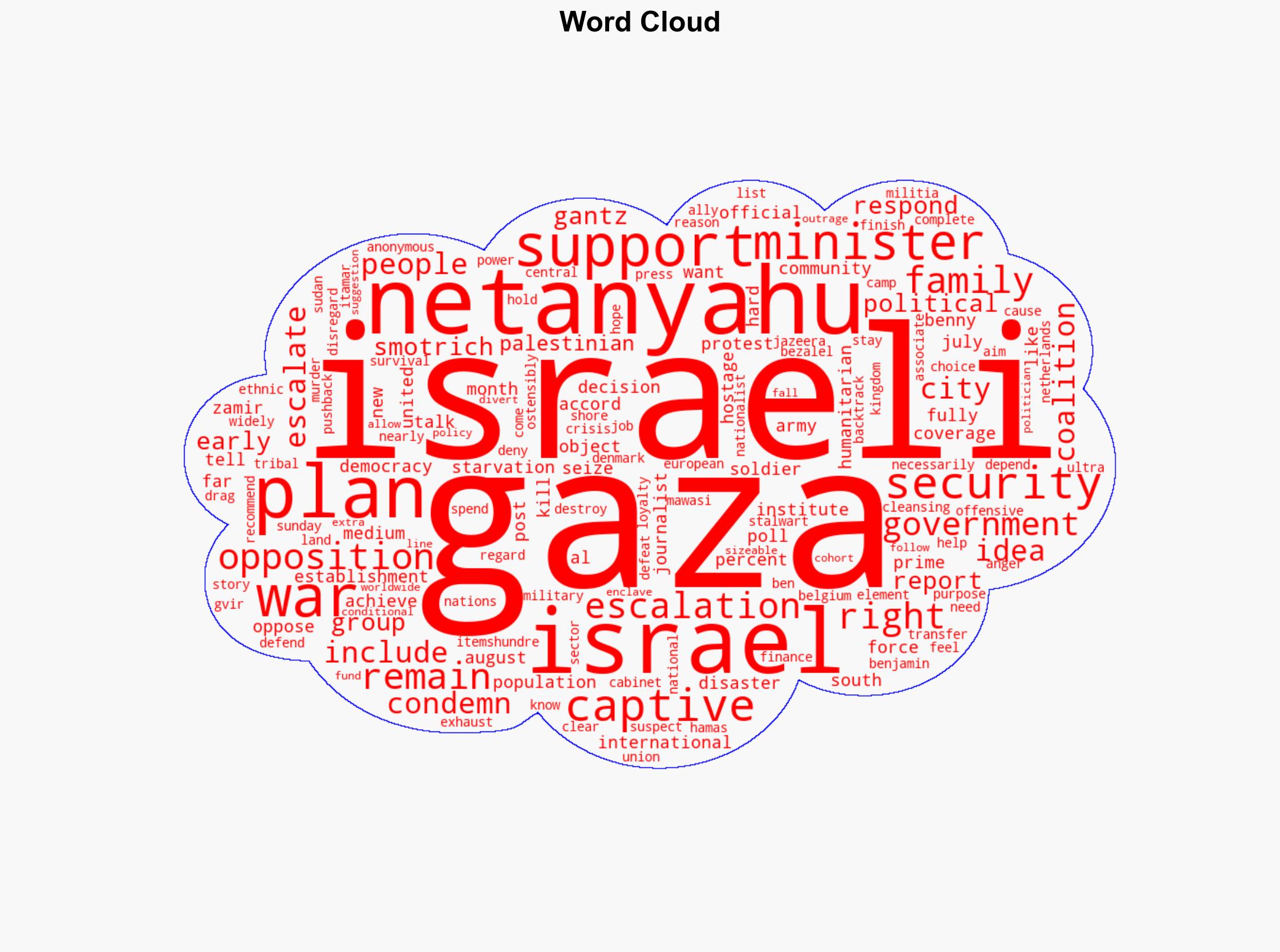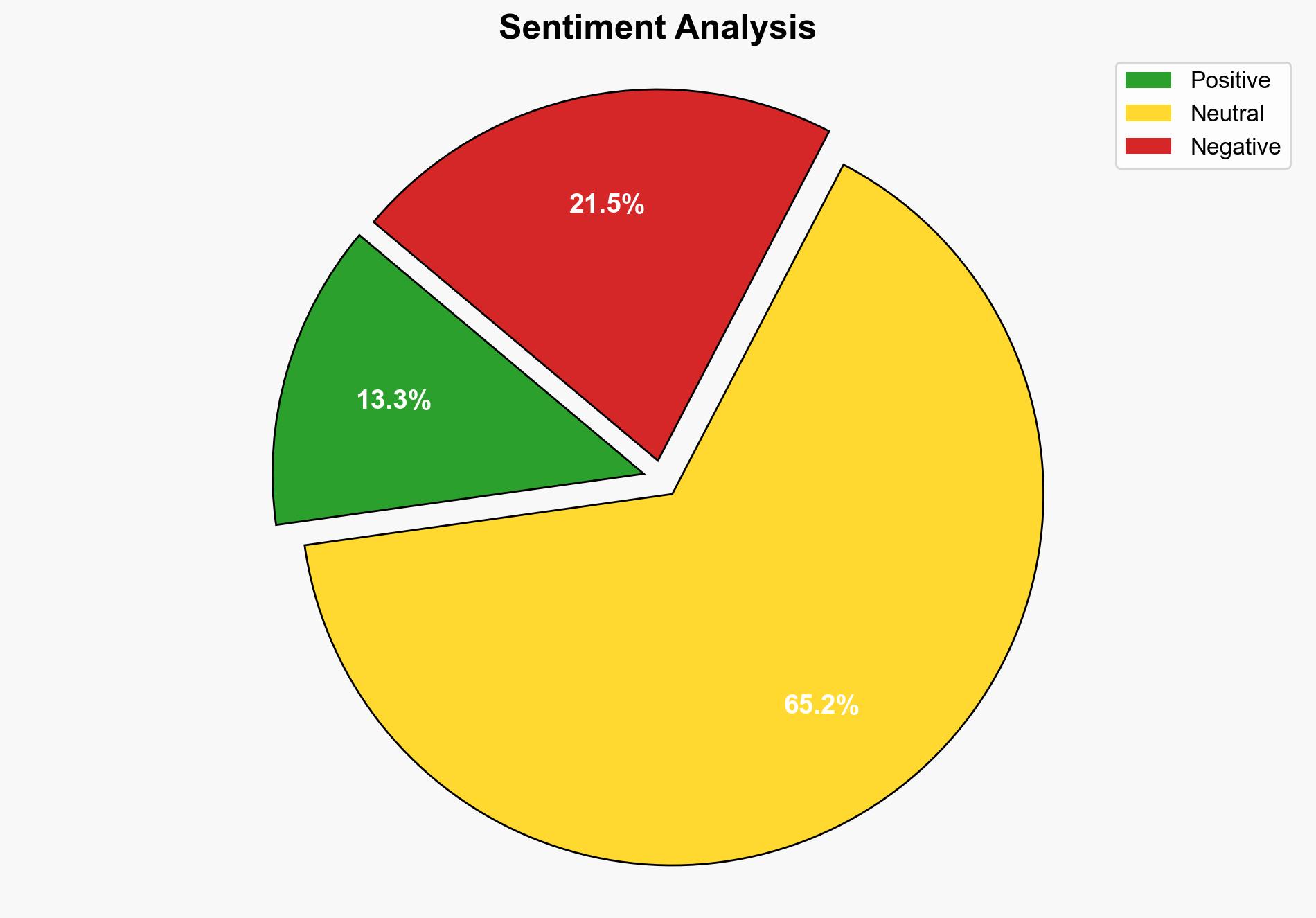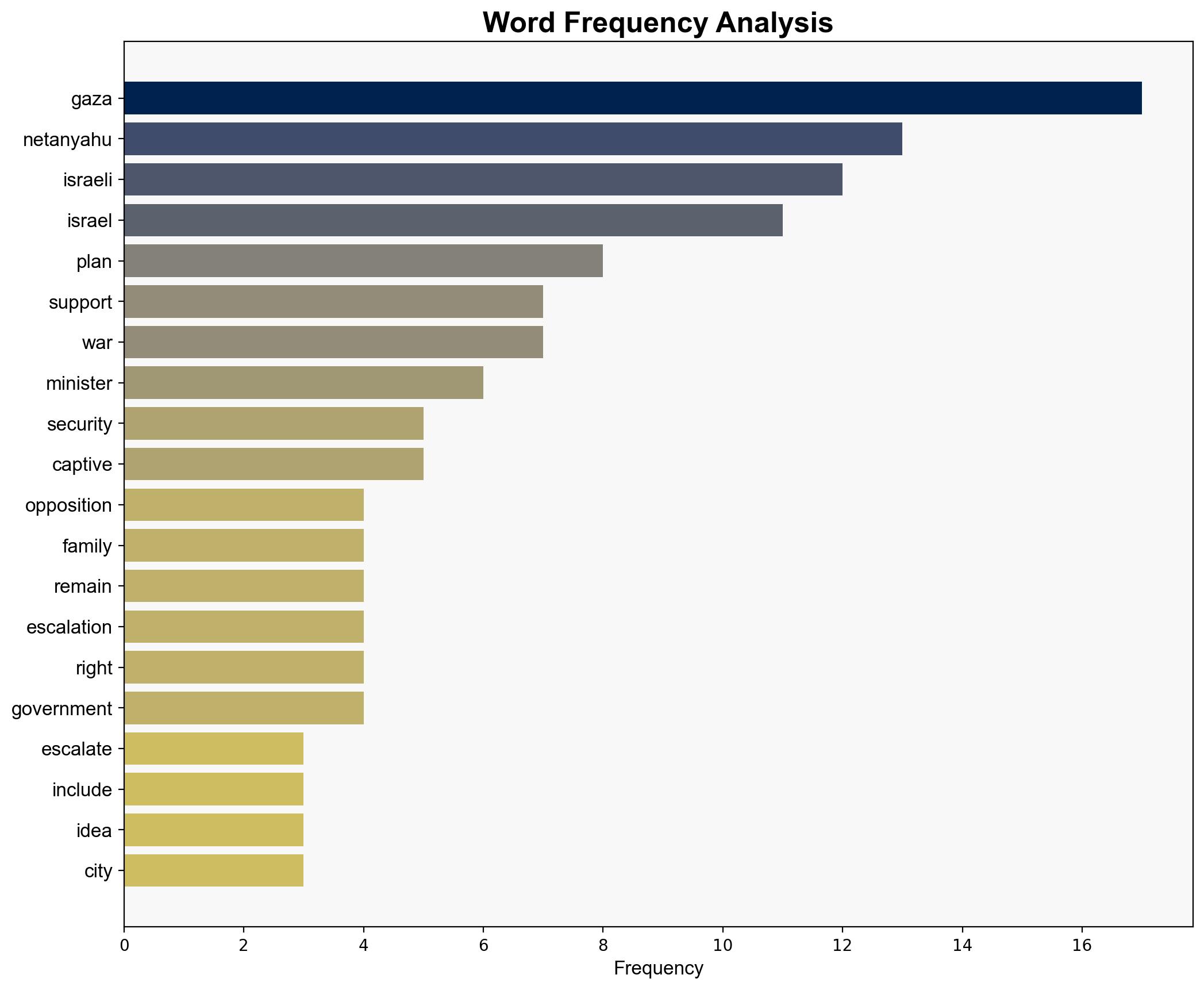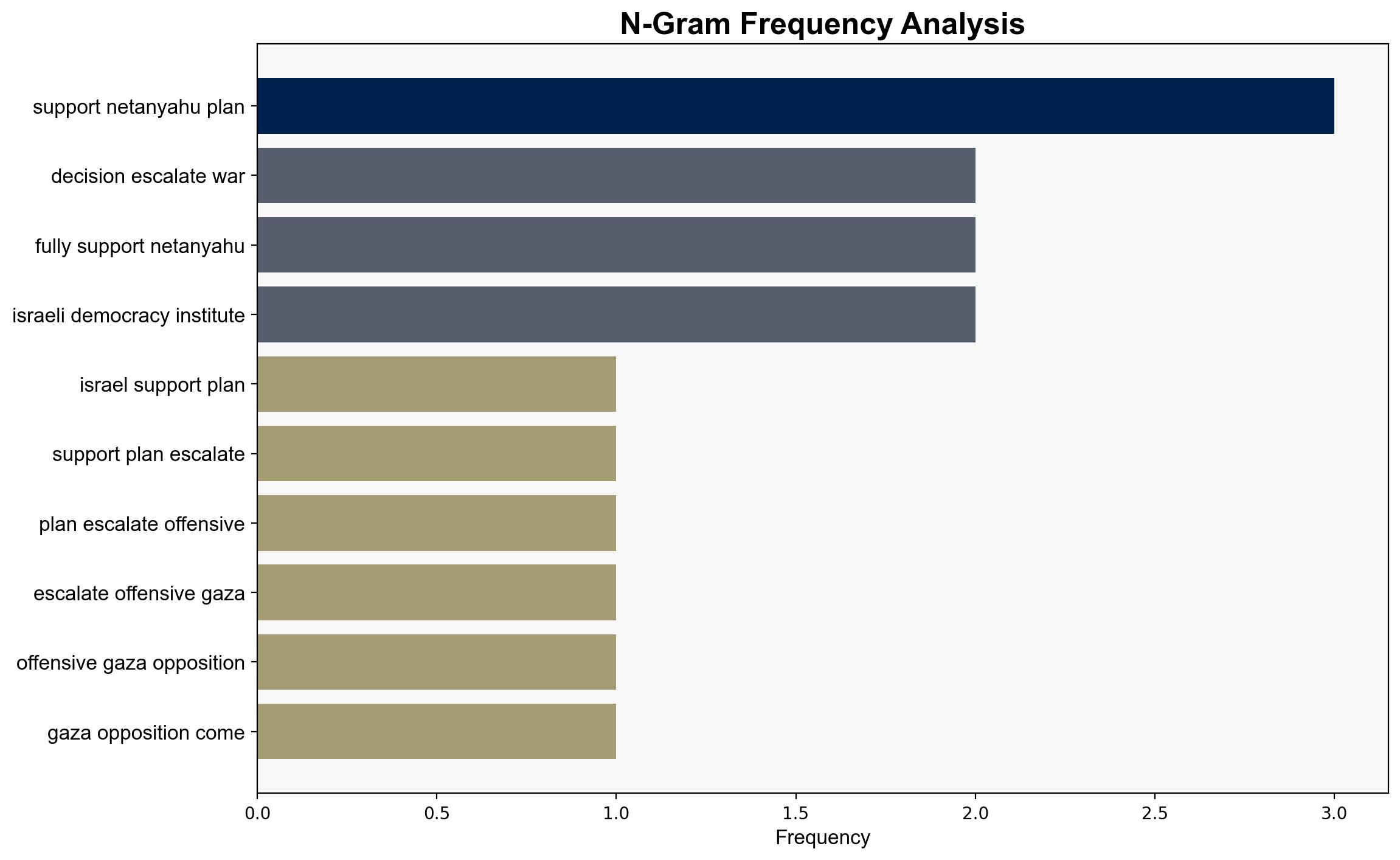Does anyone in Israel support the plan to escalate its offensive in Gaza – Al Jazeera English
Published on: 2025-08-14
Intelligence Report: Does anyone in Israel support the plan to escalate its offensive in Gaza – Al Jazeera English
1. BLUF (Bottom Line Up Front)
The most supported hypothesis is that there is significant opposition within Israel to the plan to escalate its offensive in Gaza, primarily due to humanitarian concerns and political calculations. Confidence in this assessment is moderate, given the complexity of internal political dynamics and external pressures. Recommended action includes diplomatic engagement to address humanitarian concerns and stabilize the region.
2. Competing Hypotheses
1. **Hypothesis A:** There is broad support within Israel for escalating the offensive in Gaza, driven by security concerns and political necessity.
2. **Hypothesis B:** There is significant opposition within Israel to escalating the offensive, driven by humanitarian concerns and political calculations.
Using the Analysis of Competing Hypotheses (ACH) 2.0, Hypothesis B is better supported. Evidence includes public protests, opposition from key military figures, and international condemnation. Hypothesis A is weakened by reports of internal dissent and the potential political risks for Prime Minister Netanyahu.
3. Key Assumptions and Red Flags
– **Assumptions:** It is assumed that internal political dynamics are heavily influenced by public opinion and international pressure. Another assumption is that military leaders prioritize long-term strategic stability over short-term tactical gains.
– **Red Flags:** Potential bias in reporting, as the source may highlight opposition more than support. Lack of direct statements from key political figures could indicate strategic ambiguity or deception.
4. Implications and Strategic Risks
Escalation could lead to increased regional instability, affecting economic and geopolitical landscapes. The humanitarian crisis may exacerbate international tensions, potentially leading to sanctions or diplomatic isolation. There is also a risk of internal political fragmentation within Israel, which could weaken governance and security apparatus.
5. Recommendations and Outlook
- Engage in diplomatic efforts to mediate between conflicting parties and address humanitarian concerns.
- Monitor internal political developments in Israel to anticipate shifts in policy or leadership.
- Scenario Projections:
- Best Case: De-escalation and negotiated settlement with improved humanitarian conditions.
- Worst Case: Full-scale conflict leading to regional destabilization and severe humanitarian crisis.
- Most Likely: Continued tension with sporadic escalations, driven by political and security considerations.
6. Key Individuals and Entities
– Benjamin Netanyahu
– Bezalel Smotrich
– Itamar Ben Gvir
– Eyal Zamir
7. Thematic Tags
national security threats, geopolitical dynamics, humanitarian crisis, political stability





